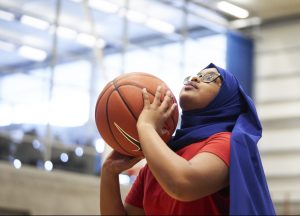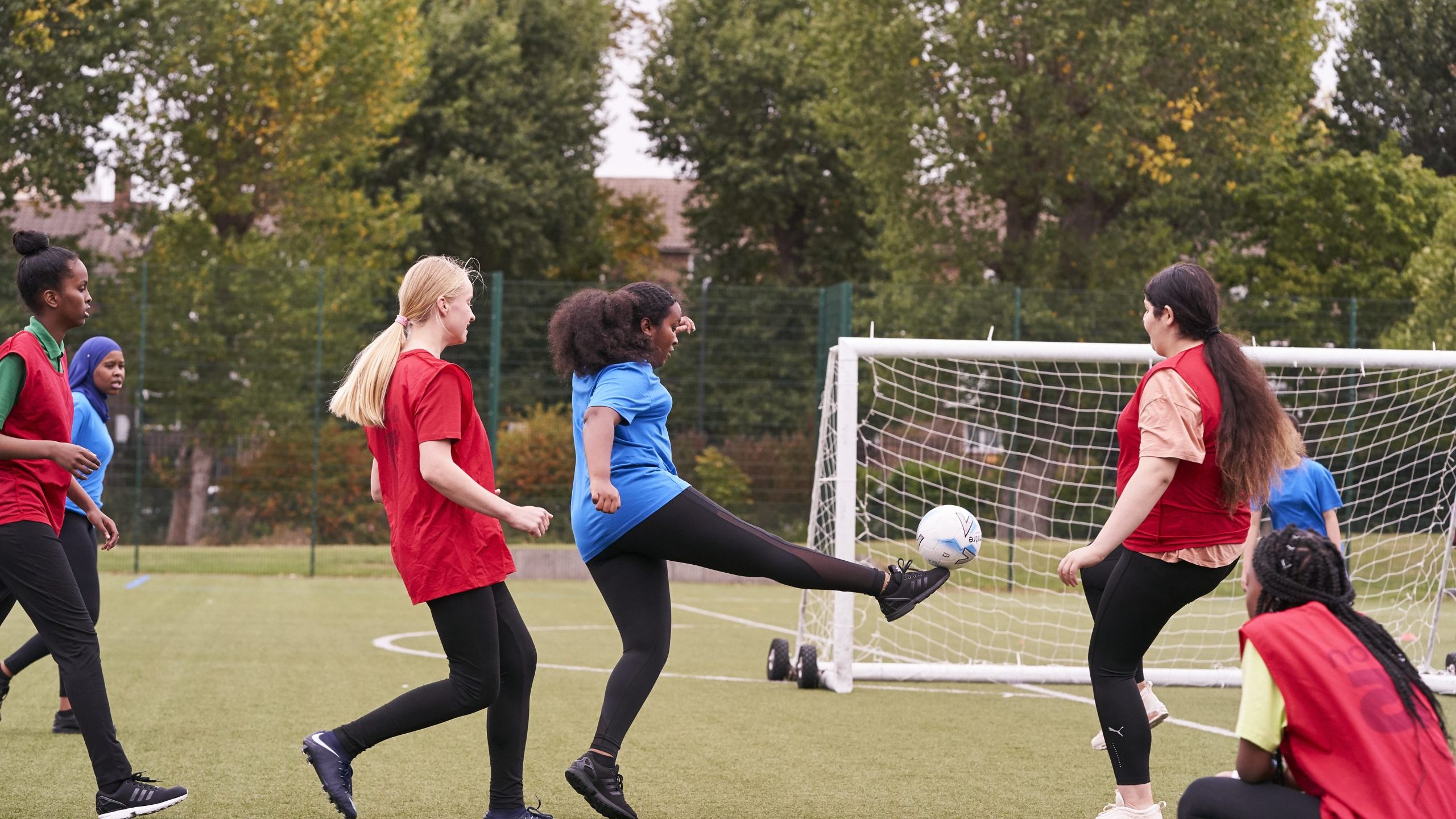
New research finds fewer than a third of girls (29%) dream of reaching the top of sport compared to half of boys (52%).
Over the last three years the charity Women in Sport has tracked how the increased visibility of elite women’s sport has inspired girls. Despite inspirational performances from football’s Lionesses and netball’s Vitality Roses this summer, the latest data shows the number of girls who aspire to play elite level sport has declined (by 2%) compared to the same time a year ago.
However, Women in Sport’s report, ‘Daring to Dream – The Gender Dream Deficit in Sport’, did find the success of women’s sport on the world stage has helped to release the hopes of a generation of girls who love sport and take part already with 86 per cent of girls in this category believing they can be like a Lionesses. However, this group is the smallest of all categories, representing just 19 per cent of all girls.
READ THE RESEARCH
Although the visibility of elite female athletes is increasing, eight in ten girls (82%) still believe women’s sport isn’t taken as seriously as men’s. Comparative lack of funding and opportunity also prevents girls envisaging a career as an athlete. Gender stereotyping also continues to have a significant and negative impact on girls with 35 per cent of girls believing they’re not expected to be good at sport, compared with just 4 per cent of boys.
The public display of misogyny witnessed following Spain’s 2023 World Cup victory also played a big role in how girls feel about the treatment of female athletes, with 72 per cent saying the ‘questionable kiss’ opened their eyes to how women in sport are treated.
‘I found it disgusting and completely inappropriate. It took away from the players celebration and I don’t feel it was handled well. You would never see this in men’s football.’ (Female, aged 23)
Typically, a man took all the media attention away from the women’s amazing achievements.
Female, aged 15
Women in Sport CEO Stephanie Hilborne said: “As children we are all asked what we want to be when we grow up. For most boys they will aspire to be a successful footballer, but generations of little girls have been denied this classic dream. Women’s team sport was never on the TV or seen as glamorous but now this is changing, aided by the heroic efforts of some amazing sportswomen.

“There have been many steps forward in women’s sport and the right visibility is vital to this, but sadly, as with women in other high-profile arenas, misogyny is casting a shadow, making the prospect of success less appealing. It makes girls and women question whether they are genuinely welcomed into, belong in, and truly want to be in the world of sport. “We are determined to challenge negative narratives around women in sport, fight against misogyny through policy change and work to change stereotypes so that all girls feel they belong in sport – and boys make them feel welcome. We aren’t prepared to sit back and watch misogyny and gender stereotyping stifle girls’ dreams.”
When asked about what they would like the future of sport to look like six in ten girls would like to see equal coverage of women’s and men’s sport and more than half of girls believe the achievements of women in sport deserve to be celebrated more. Girls also said a greater diversity of female athletes would encourage them to get more involved in sport (f. 47% v m. 24%).

More than four in ten girls (46%) would like to see an increase in opportunities to try a variety of sports at a young age and more chances to join clubs and teams outside of school (40%). Girls also cite the need for better sports facilities (46%) and for teachers and coaches to better understand their needs (37%).
This is particularly relevant for girls who don’t take part much in sport but want to do more. Half of girls in this group felt inspired to play more sport following the Women’s World Cup but are put off by people watching and judging them (61%), one in five girls (20%) say they feel uncomfortable wearing sports kit and 14 per cent dislike taking part with boys.
READ THE RESEARCH




